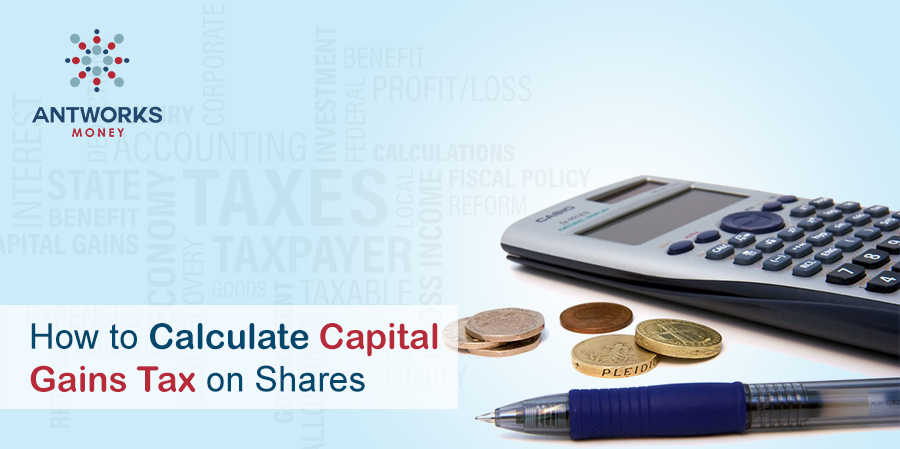
How to Calculate Capital Gains Tax on Shares
There are two types of capital gains – short-term and long-term.
Short-Term Capital Gains:
As per the Income Tax laws of India, if an investor holds an immovable asset for less than 36 months before selling it, it would be considered a short-term capital gain. But this is not applicable to stocks and bonds. Stocks, shares, and bonds are faster-moving compared to real estate. Because of this, if they are held for 12 months or less before the sale, they fall under short-term capital gains. However, this rule is applicable only to securities which are listed and traded on the stock exchange. If you are trading in unlisted or over-the-counter securities, then the 36-month rule applies.
Long-Term Capital Gains:
Income Tax laws in India specify that immovable property held for more than 36 months – or 3 years – before sale, fall under long-term capital gains. For stocks, shares, and bonds, this period is more than 12 months instead of 36 months. Unlisted securities, on the other hand, will be considered as long-term capital gains only if sold after 36 months.
How to calculate Capital Gains on Shares?
Short-term capital gains can be computed by subtracting the following 3 items from the total value of sale:
- Brokerage or expenditure incurred in connection with the sale of the asset
- The purchase price of the asset
Calculating the long-term capital gains is a little more complicated. The 3 items you need to subtract from the total sales value are:
- Brokerage or expenditure incurred in connection with the sale of the asset
- The indexed purchase price of the asset
Indexed cost is arrived at when the price is adjusted against the rise in inflation in the asset’s value. The Government of India releases Cost Inflation Index, through which the indexed cost can be estimated. The Cost Inflation Index (CII) from the fiscal year 1981-82 to 2016-17 are available. Here’s the Cost Inflation Index (CII) from 2010-11 to 2016-17:
| Financial year | CII |
|---|---|
| 2010-11 | 711 |
| 2011-12 | 785 |
| 2012-13 | 852 |
| 2013-14 | 939 |
| 2014-15 | 1024 |
| 2015-16 | 1081 |
| 2016-17 | 1125 |
The formula to check the indexed purchase price of the asset is: Cost of purchase multiplied by CII of the year of sale divided by CII of the year of purchase
How to calculate Short-Term Capital Gains Tax?
Tax rates differ for short-term capital gains and long-term capital gains. There is a 15% tax on short-term capital gains that fall under Section 111A of the Income Tax Act. This includes equity shares, equity-oriented mutual-funds, and units of a business trust, sold on or after October 1, 2004, on a recognized stock exchange, and falling under the securities transaction tax (STT).
Capital gain: Full sales value – (Brokerage at 0.5% + purchase price)
Short-term capital gains tax: Short-term capital gain multiplied by Tax rate divided by 100
Debt-oriented mutual funds and preference shares, however, do not fall under the purview of Section 111A. In this case, the income from the sale of the funds or shares will be added to the regular income of the owner and taxed according to normal individual I-T rules.